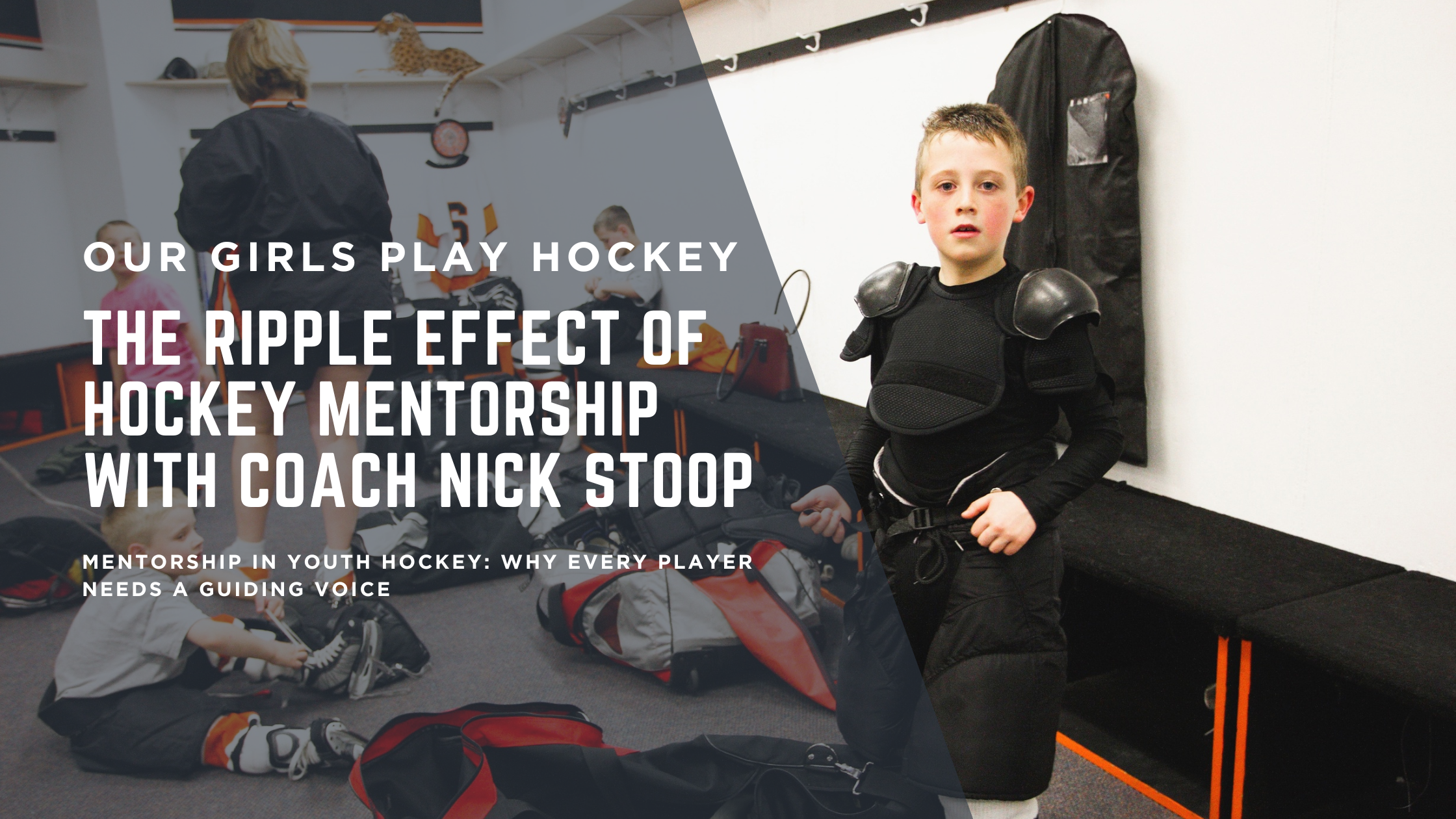The Ripple Effect of Hockey Mentorship with Coach Nick Stoop

When you think about what makes a great hockey player, your mind might jump to skills, skating, or stats. But one of the most important ingredients to success in hockey often goes unspoken: mentorship.
In a recent episode of Our Girls Play Hockey, Olympian and PWHL star Hayley Scamurra and her trainer and mentor Nick Stoop joined Lee Elias to break down what mentorship really means in hockey. Their conversation goes beyond the rink, touching on emotional intelligence, communication, and community support.
Mentorship: More Than Just Coaching
As Hayley puts it, mentorship is a form of coaching that extends off the ice. It's about helping players navigate mental, emotional, and physical challenges, not just game-day performance.
Nick adds that good mentorship isn’t about copying a mentor's actions blindly. It's about learning how they think, approach challenges, and grow. Mentors guide players to understand their own paths, not just follow someone else’s.
"You want to learn about it, you want to understand it, and you want to know why and how these things are benefiting you and bringing you closer to your goal." – Nick Stoop
The Right Mentor Makes All the Difference
Finding the right mentor matters. A mentor can be a coach, teammate, or even a peer. Age doesn't define mentorship—experience, empathy, and character do. For Hayley, players like Hilary Knight and Kendall Coyne weren't just teammates, they were calming, supportive voices who helped her prepare for the Olympics.
Mentorship in Girls Hockey: Creating Inclusive Environments
For young girls navigating a still male-dominated sport, mentorship is crucial. Coaches and teammates need to be intentional about creating inclusive spaces. That includes:
-
Encouraging players to connect with different teammates
-
Addressing locker room dynamics on co-ed teams
-
Being aware of how small moments of support can create lasting impact
Beyond Hockey: Family Dynamics and Emotional Wellness
Nick shares that mentorship often involves the whole family. He sees emotional challenges that show up on the ice as often stemming from school, home, or social stress. Great mentors ask, "What’s really going on?" and help young athletes process emotions constructively.
The Pro Athlete Experience: Building a Mentorship Community
Hayley and Nick created the Pro Athlete Experience, a mentorship community that hosts weekly calls where young athletes share their struggles, ask questions, and support each other.
"Seeing how comfortable they got being vulnerable... That is single-handedly one of the biggest growth factor indicators for any human at any age." – Nick Stoop
Coaches: You Can Create a Mentorship Culture
Coaches play a vital role in establishing a mentorship culture:
-
Assign leadership roles to natural team leaders
-
Encourage peer-to-peer support
-
Be mindful of family dynamics and off-ice challenges
-
Lead with empathy and emotional awareness
Key Takeaways for Parents, Coaches, and Players:
-
Mentorship isn’t age-dependent: It’s about connection and experience.
-
Emotional awareness matters: Performance often ties back to off-ice issues.
-
Create space for vulnerability: Trust grows through openness.
-
Mentorship is a two-way street: Players often mentor their mentors.
-
Community is everything: The more we support each other, the stronger we all become.
Final Thought: Hockey Is a Vehicle for Growth
Mentorship transforms hockey into something bigger than a sport. It becomes a way to grow as people, to build community, and to create lasting impact. As Hayley reminds us, even the simplest acts—like asking a teammate to grab coffee—can become powerful moments of support.
Let’s continue building a culture in hockey where mentorship is as valued as stickhandling or scoring goals.
Want more insights like this? Subscribe to Our Kids Play Hockey and join the conversation. Mentorship begins with a single connection. Be that connection.


